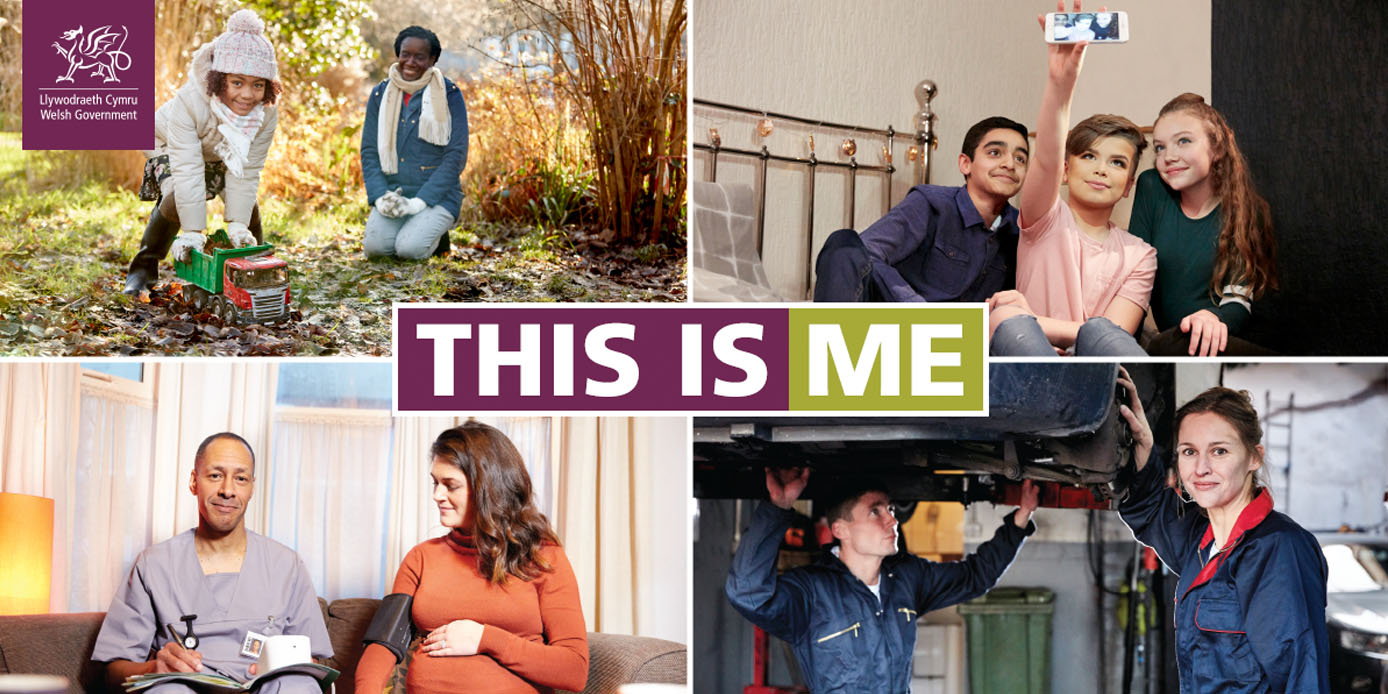
Communicators call time on outdated gender stereotypes
This year marks the celebration of a century of voting rights for British women and, if the last two months are anything to go by, says Angharad Neagle, group managing director of Freshwater, 2018 looks set to be a significant year for gender representation.
Gender issues have dominated our headlines and shaken political, business and entertainment structures to their core. From the Time’s Up and #MeToo movements to the recent resignation of the BBC’s China editor, Carrie Gracie, over the equal pay row: momentum continues to gather apace for change.
Closer to home, last month, Freshwater worked alongside the Welsh Government to launch #thisisme, a multi-media campaign that challenges society’s gender stereotypes and inequalities in an effort to prevent violence and abuse. Part of the Welsh Government’s wider Live Fear Free initiative, it is the first in a series of campaigns aimed at tackling violence against women, domestic abuse and sexual violence.
Gender inequality is a cause and consequence of such abuse and violence in Wales. By challenging ideas about gender stereotypes using positive examples – a man working as a midwife, a woman working as a mechanic, a young man expertly applying make-up and a girl playing with a muddy truck – the campaign seeks to spark discussions about the values and limitations negative gender stereotypes are placing on us all, girls, boys, women and men alike.
Thankfully, the Welsh Government is not alone in recognising more needs to be done to tackle outdated and harmful gender stereotypes.
This spring, the Committees of Advertising Practice (CAP) will consult on a new rule about the depiction of gender stereotypes in ads. The rule, and guidance on how to apply it, is expected to be finalised and introduced to the UK Advertising Codes later this year.
The move follows a review by the Advertising Standards Authority (ASA) on harmful gender stereotyping in advertising – ‘Depictions, Perceptions and Harm’. Published last summer, it found that while most advertisers are getting it right, a tougher line is needed on ads featuring stereotypical gender roles or characteristics, particularly those that mock people for not conforming to them.
One particularly powerful catalyst for the research were complaints about the 2015 Protein World ad featuring a model in a yellow bikini together with the slogan ‘Are you beach body ready?’ The ad, which appeared in poster sites on the London Underground, was removed owing to concerns about the company’s health and weight loss claims, but complaints about the image and messaging helped prompt the debate, which has resulted in the new gender stereotypes legislation.
The UK advertising industry is undoubtedly late to the table on this specific issue. Of the 28 countries the ASA examined for its review, 24 already restrict gender stereotypes in advertising through legislation or regulatory bodies, including the likes of Canada, France, Ireland, Spain and South Africa.
That said, research released by The Geena Davis Institute on Gender and Media and J Walter Thompson last year shows globally we’ve still got some way to go. Among its findings were that men still get four times as much screen time as women and are more often portrayed as leaders.
While we’ve, thankfully, moved away from the days of Yorkie bars being ‘not for girls’, trips to Iceland being just for mums and men being portrayed as unable to perform the most basic of household chores, there are plenty of recent adverts that appear to have missed the mark. Examples include a GAP advert that labelled a boy “the little scholar” and a girl as “the social butterfly”, and a KFC advert featuring two men arguing over who was more manly.
While new rules and guidance won’t ban all forms of gender stereotypes in advertising – the new rules should at least help advertisers know where to draw the line of acceptability.
Advertisers have the power to impact culture, public opinion and attitudes. With that power comes a responsibility to think carefully about the gender stereotypes they may be reinforcing.
And taking a more progressive approach is no bad thing for business. Last year, Unilever joined forces with UN Women to launch the Unstereotyping Alliance, aimed at eradicating gender stereotypes from advertising and brand-led content. For Unilever, banishing gender stereotypes has been as much a business as social imperative.
According to Keith Weed, its chief marketing and communications officer, progressive advertising delivers 25 per cent better branded impact, and the company has reported “encouraging results” since it adopted a more enlightened approach.
As this, and the #TimesUp, #MeToo and #thisisme movements have highlighted, creativity and communication can be a powerful force for positive change. Brands and advertisers, who want to make an impact for all the right reasons, would be wise to take heed.
This article appeared in the Western Mail newspaper on 12 February 2018.
